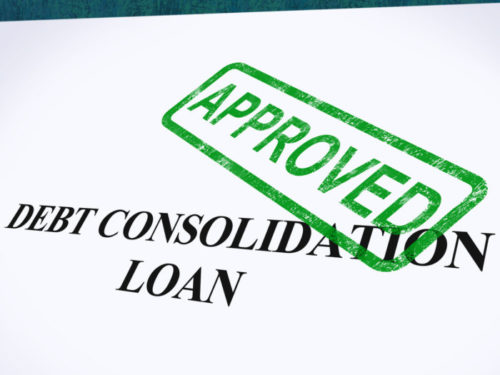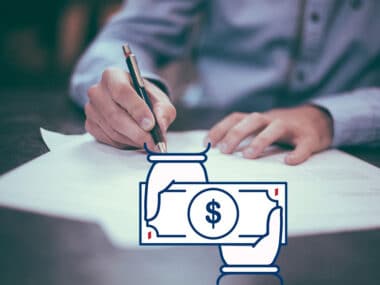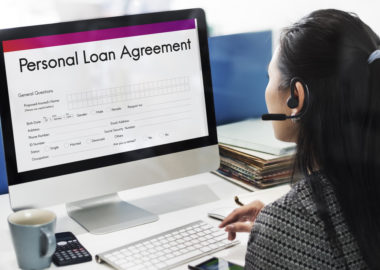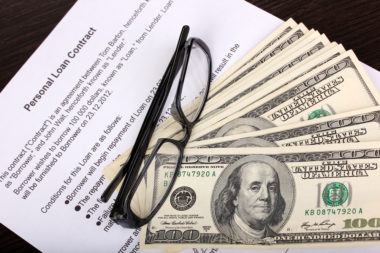Eighty percent of Americans are in debt of some kind. While many of these people may be able to manage or settle their debt, they may find it challenging to maintain a good credit score. Those with a low credit score will tell you that it affects credit and loan approval, credit card and loan rates, approval for rental applications, and causes many more financial difficulties.
A study has shown that more than 53% percent of Americans are turned down for a credit card, loan, or car due to poor credit. A low credit score is below 580 according to the FICO credit score scale. Americans with a low credit score are finding themselves trying to get out of debt, but not able to get a loan, manage their debt, or find debt relief of any kind.
If you have a fair credit score, you may be able to get approved for a debt consolidation loan to help gain a better sense of financial stability. However, before you set out to find a debt consolidation loan, you may want to understand why it would benefit you, whether you qualify, where you can get a loan from, and what you can do to manage your debt if you don’t qualify.
Table of Contents
What Is a Debt Consolidation Loan?
If you qualify, a debt consolidation company may lend you a debt consolidation loan. A debt consolidation loan is a personal loan that combines a number of debts into one loan.
You’ll receive a debt consolidation loan for the amount you owe and you can use it to pay off credit card debt, student loans, and other obligations. Then, you will begin paying off your new, debt consolidation loan in monthly payments.
Benefits of a Debt Consolidation Loan
A debt consolidation loan carries many benefits. If you qualify for one, a debt consolidation loan can:
- Save you money by giving you a lower rate;
- Simplify your finances by combining multiple loans into one;
- Forgo your need to forfeit collateral, as debt consolidation loans are generally unsecured;
- Increase your credit score by allowing you to pay off your debt(s) — increasing your credit utilization rate.
Qualifying for a Debt Consolidation Loan
The qualifications for a debt consolidation loan will vary by lender. Typically, a lender will examine your credit score, debt-to-income ratio, and income to determine the risk of giving you the loan.
A credit score of about 650 is generally needed for a debt consolidation loan. You’ll find that getting a loan with a poor credit score may be difficult, but not impossible. There are some lenders that will work with you if you have a lower credit score — but keep in mind, you may end up paying a higher interest rate.
Where to Get a Consolidation Loan With Bad Credit
You can apply for a debt consolidation loan at a variety of places. You’ll want to shop around to see if you qualify and find out where you’ll get the best rate despite your poor credit. Consider the following types of institutions when starting out on your debt consolidation loan search.
- Banks and credit unions: Speak to a loan officer at your bank or credit union to inquire about whether you qualify for a debt consolidation loan. Many times, if you’ve built a good relationship with the bank/credit union, they may be willing to place less weight on your credit score and look at your whole financial history and personal circumstances to approve you for a loan.
- Online lenders: While they may charge a higher annual percentage rate (APR) on loans, online lenders may be more inclined to qualify those with bad credit. By checking online, you can compare rates without affecting your credit score, conveniently apply (rather than walking into a bank and filling out loads of paperwork), and get the loan very quickly.
Online lenders will all have a minimum credit score requirement, varying APRs they will set, and different loan amounts they are willing to extend. Depending on your financial situation, one lender may be better for your debt consolidation efforts.
Managing Your Debt Consolidation Loan
Once you take out a debt consolidation loan, it will become vital that you make a plan to make your payments on time. Otherwise, you’ll be in the same debt you were in at the beginning (and maybe even more). It is wise to carry out the following when managing your debt consolidation loan.
- Make a budget: A budget is a best practice for financial stability. It allows you to completely understand your expenses and whether you can cover them. Add your monthly debt consolidation loan payments into your budget to make sure it is getting paid on time.
- Pay off your debt: While it may be tempting to use a debt consolidation loan for other matters, that’s not what the loan is for. If you spend this money on other things, it defeats the purpose, and now you’ll just have another loan to pay off.
- Pay on time. Especially if you are paying a higher interest rate, you’ll want to continually pay off your loan on time to avoid penalties and fees. It may be a good idea to set up automatic payments to ensure the money is transferred on time, every time. Additionally, making your payments on time can raise your credit score.
- Address spending issues. Chances are that bad spending habits got you into debt in the first place. If you’ve made a budget, you can see where you are unnecessarily spending. One major goal will be to minimize your credit card spending. The idea of a debt consolidation loan is to erase your debt, not create more.
DIY Debt Consolidation
It may be the case that your credit score is too low for any lender to qualify you for a debt consolidation loan. Or, you don’t want to get caught up in another loan and associated payments. Whatever the case, you can take it upon yourself to consolidate and manage your debt.
- Debt snowball method: The debt snowball method can help tremendously when you’re paying off several debts. Essentially, you’ll tally up all your debts and make a point to pay off the minimum of every debt while paying as much as possible on your smallest debt. From there, your smallest debt will soon be paid off. Then, you’ll focus on paying down your next smallest debt while making minimum payments on the others — and so on. Doing this also reduces money paid on interest rates, as you are reducing the money these rates apply to.
- Debt management plan: Getting on a debt management program is one of the best ways to consolidate debt. It is an opportunity to lower your debt in one convenient, comprehensive package. This can also be coupled with debt/credit counseling to create a well-rounded financial plan.
- Home equity: Home equity loans will help you pay off your debt as well. Even if you have bad credit you can still get a home equity loan or home equity line of credit. You may receive a lower interest rate and tax advantages by using a home equity loan, but you may need to use your home as collateral, putting it in jeopardy if the payments aren’t made. Additionally, this option is not available for those who rent.
Managing debt can be a challenging journey. However, by getting a debt consolidation loan or taking the necessary steps to do it yourself, you may find that it is easier than most think. Just remember, for any loan, making your payments on time will be crucial.
Image Source: https://depositphotos.com/





